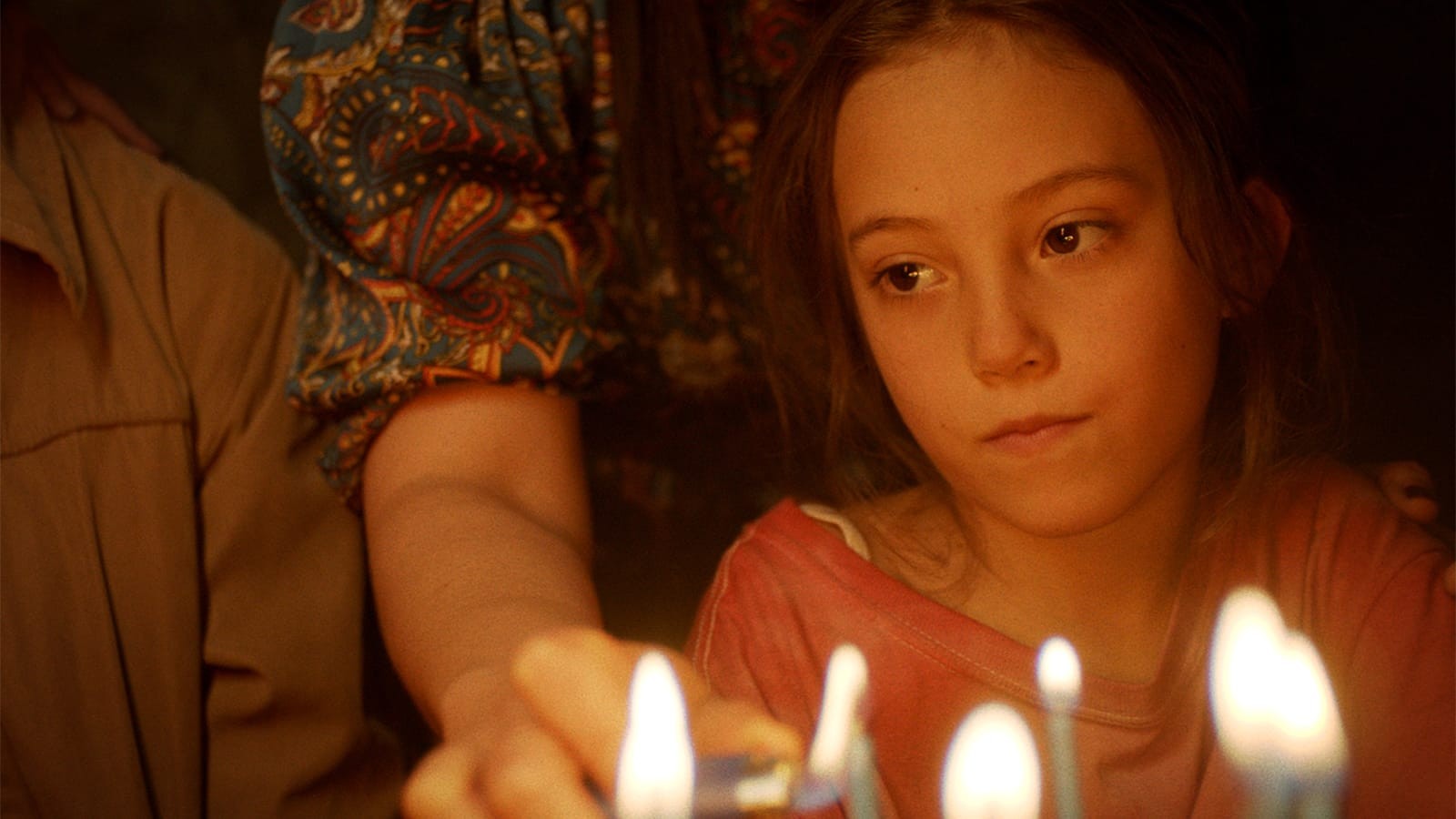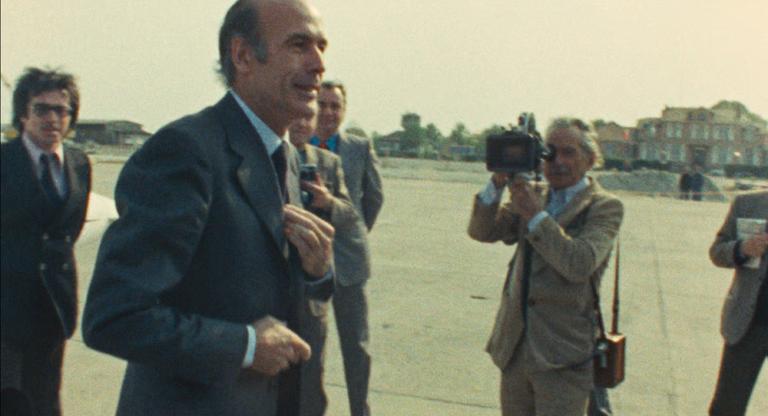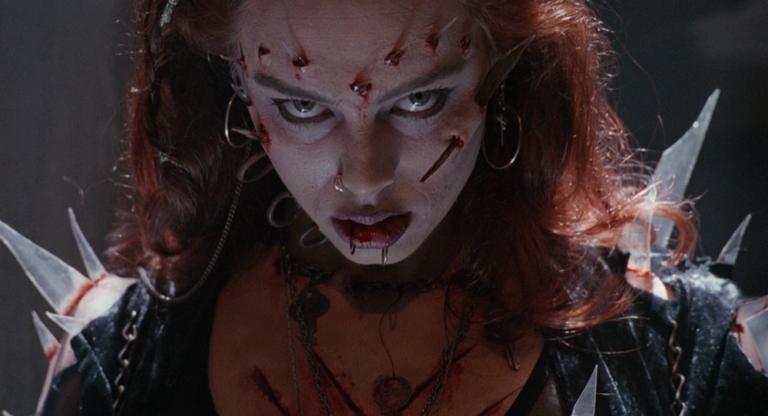“Intimate” is a word that often gets overused in film writing. In the Mood for Love (2000) is an “intimate drama”; the MCU’s Scarlett Johansson vehicle Black Window (2021) is “emotionally intimate”; and even Denis Vileneuve’s Dune (2021), despite its intergalactic scope, has an “intimate” narrative. But with its tight aspect ratio, heavy use of close-ups, and penetration of private spaces like bathrooms, Tótem—the sophomore film by Mexican director Lila Avilés (The Chambermaid, 2018)—truly feels deserving of the term. The movie follows the daytime preparations for, and eventual nighttime execution of, a birthday party for Tona, a sickly, skeletal young man who is clearly close to death. Sol, Tona’s seven-year-old daughter, is dropped off at her grandfather’s house in the morning by her mother but because Tona is resting in a back room, Sol is forced to spend most of her afternoon fending off boredom, her noisy younger cousin, and the pitying looks of her aunts.
Sol is aware that her father is not well; she wishes, at the beginning of the film, “for Daddy not to die.” But it is from the hushed conversations in the kitchen, the anxious spiritual housekeeping, and even some winking black humor—including the naming of a pet fish “Nugget”—that we begin to see Sol clue in, and her awareness shift from the abstract to the concrete. Achieving this effect on screen, with minimal dialogue, requires the work of an incredibly gifted actress (and the young Naíma Sentíes certainly is), but it also takes the intimate and intuitive touch of a filmmaker to draw it all out. In Tótem, Avilés does so with aplomb.
Ahead of Tótem’s run at Film Forum, I spoke to Avilés about the feminine, organic energy of her film; working with kids and animals; and how the project is a personal gift for Avilés’s own daughter. Our conversation has been edited for length and clarity.
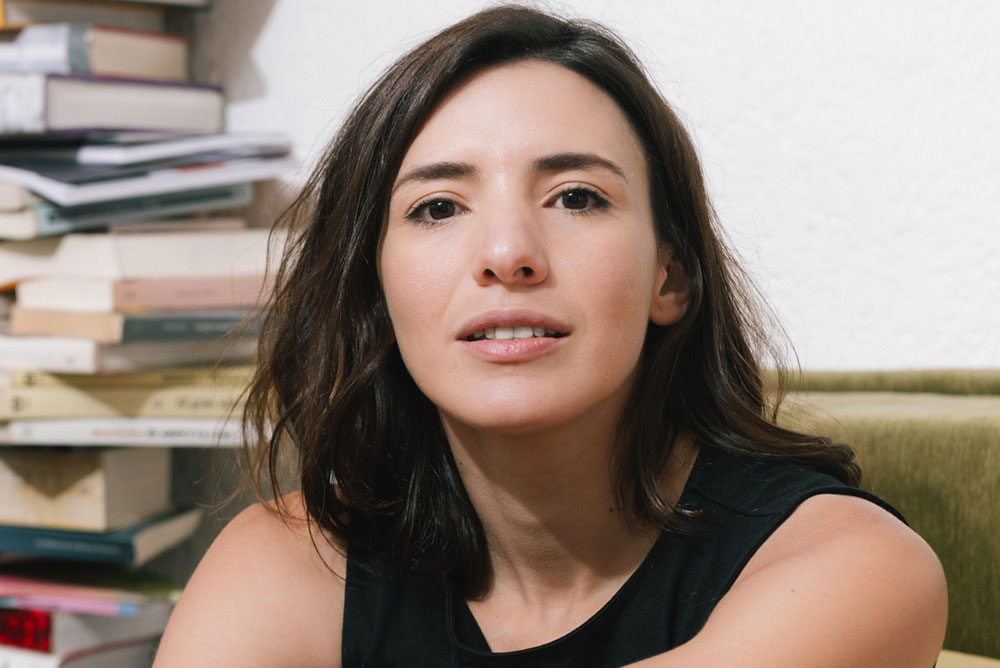
Jeva Lange: You’ve described yourself in other interviews as a bit of a control freak, but Tótem feels very organic and intuitive. Was that tone a product of your obsession, or did you find yourself loosening up in the making of this movie?
Lila Avilés: I think it’s a matter of equilibrium. Unfortunately, I am that kind of personality: a good control freak. But on the contrary, I give a lot of freedom. I have that balance. Yes, I’m a control freak in the sense of being super honest with the feeling of every single scene when I’m directing, but I don’t do a million takes, not at all. I like to be in the same path with the actors and with the essence I want to achieve.
JL: There’s an old Hollywood saying that you should never work with kids or animals. You broke both those “rules,” so I wanted to start with the question of the kids, who are so charming in this film. Did you go into the shoot with an idea of who you wanted the characters of Sol [Naíma Sentíes] and Esther [Saori Gurza] to be? How much of their personalities were created on set by the respective actresses?
LA: I always say, cinema is a wonder. It’s such a mystery, it’s super profound. To catch these girls was so special. Naíma — it was the first time she acted in her life. And she’s a super unique girl and super weird, and we’re super similar somehow. She’s intuitive, she reads a lot, and she’s a nice girl. Super sensible, but super open and so funny.
And the little one, Esther, she’s super unique. At first, Saori did not want to be mischievous. She was like, “No, no, no! I don’t want to do that!” I’d say, “Throw something to her” and she’d say [in a whining voice] “Noooo, I don’t want to! No, that’s bad!” And I’d say, “No, no, it’s a film, you can do it.”
JL: That’s adorable!
LA: When her mother gave her permission — “yes, you can do it” — then she started to enjoy all those things. But she’s so adorable and every single scene with her was such a beauty. I was a young mother, so for me, every single scene with this little girl, it was like returning to my own story.
Naímahad a bit of pressure at first — like, “I’m going to be the protagonist?” And I was like, “Yes, but you are not alone. We are all a crew that will love you and we will take care of you and all the other characters.” It was so beautiful to know that we have so much in common and the process was so profound. Obviously, I cannot push her like, “Hey, hey, come on, [we’ve got to do] the scene.” It was a matter of talking a lot and communicating, and sometimes Naíma’s energy was to the top and sometimes her energy was super small. But I needed to give her space, like family.
She was in a moment of her life that was not so nice. She didn’t like her school, she’d moved to a different state, and so she didn’t have friends. She was in a moment that was kind of fragile. It was so amazing that we found each other. She was calling me almost, like, telepathically. It was really beautiful.
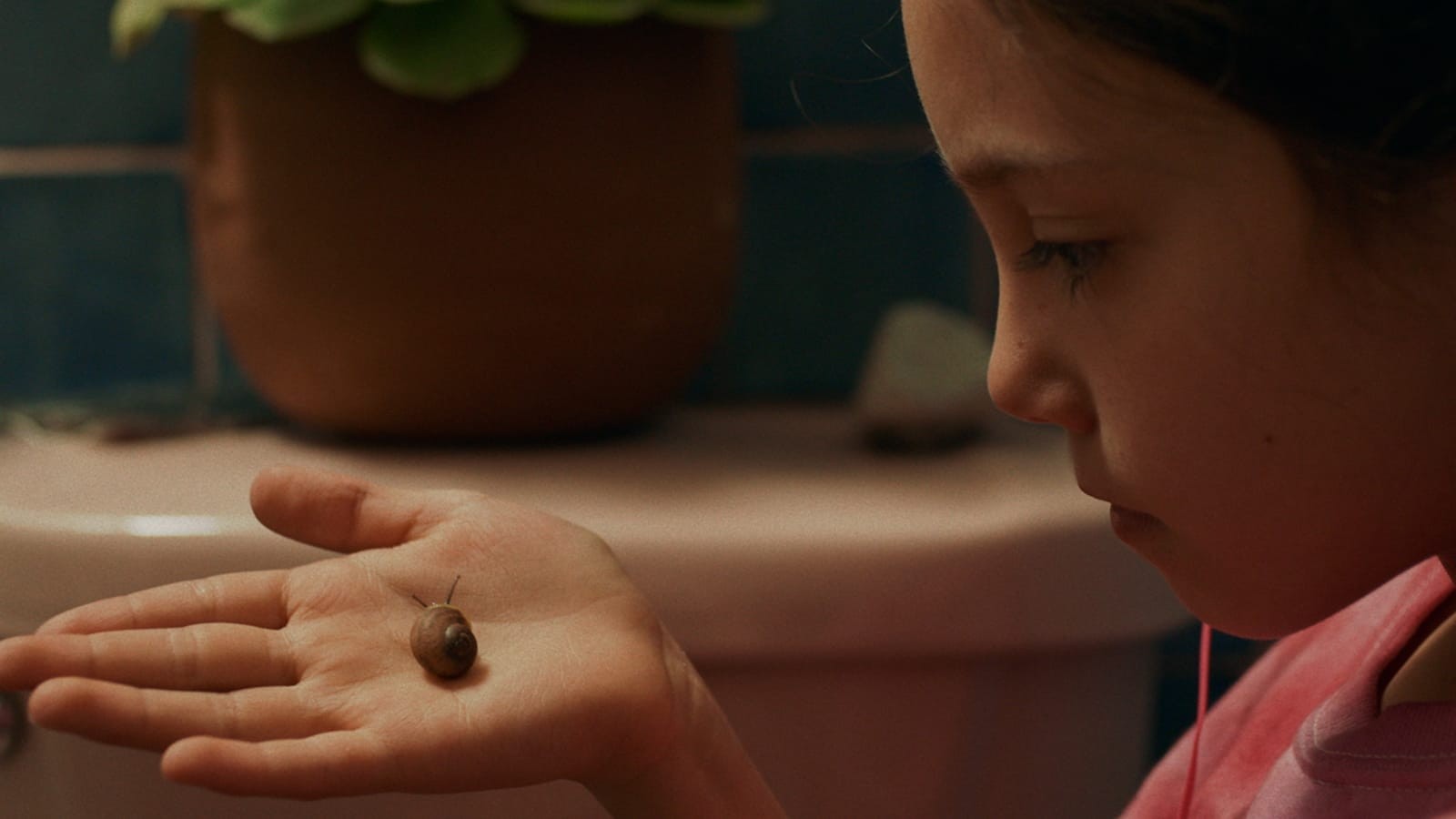
JL: I also wanted to ask about all the animals. There’s a cat, multiple dogs, a fish, a falcon, a parrot, slugs and snails, and a lot of insects. Was that a motif that arose naturally when you were writing the script?
LA: Since the first moment, I knew that Tótem was going to be a microcosm. It was nice to put in all those animals and for that to feel natural. No, I cannot put in a jaguar or something so strange. But yes, I thought, obviously these domestic animals that we normally have in our houses like cats and dogs, and also the other animals. It’s a kind of feminine energy that’s also in the house. It’s about that connection between the different sensibilities.
JL: There are a lot of characters in this film and they all feel so realized on screen. Can you talk about the process of writing for so many distinct voices?
LA: I enjoy those moments when you’re in the writing process that you catch, “Ahhh, she speaks like this.” For me, those moments are freedom, like, “Oh! I’ve entered into writing,” you know? Like, now it’s happening.
I knew that the grandfather was a therapist but he cannot speak. And on the contrary, the sisters speak so much. It’s a matter of balance and somehow, in the middle, Sol is trying to catch what’s going on. Sometimes families communicate and sometimes families don’t communicate, and for me, it was important that Sol tried to figure out what was going on.
JL: I wanted to ask you about the grandfather [Alberto Amador]. He was one of the characters I felt most tenderly toward. There’s so much feminine and maternal energy in this film and by contrast, he’s the family’s silent patriarch. I was curious how you arrived at him as a character and what it was like working with Amador on set?
LA: It came organically. It wasn’t like “Oh, I want to do it, I want to make this statement.” It’s something that comes from a family that is super methodical. My aunts, my mother — they are crazy women. They made lots of stuff for the kids and were multitasking and were super strong women. The main characters [in the film] are not so communicative; they’re doing more of their own kind of introspection. Sometimes you cannot speak but it’s not as if — you know, the grandfather is doing his bonsai. Everyone is different and has their own value and their own way of having relationships and acting. And sometimes, as humans we go, “I want her to be like me.” But leave her alone! She has her own style and personality.
JL: I saw that at the end of the film, you had a dedication to your daughter. It made me think of the really beautiful line that Tona [Mateo García Elizondo] says to Sol when he’s giving her his painting: “Sometimes there are things you want to see and can’t.” Had that parallel occurred to you — were you thinking about your daughter when you made the film?
LA: This film is super personal. Obviously, I’ve changed a lot, but yes, my daughter is super energetic, she was always moving, she cannot be in one place. But it was the process of losing her dad that somehow changed her personality a little bit. And she was in a kind of introspection; it was important for me to catch her and to try to be super present with her. Somehow, yes, I thought: “I want to do this special thing for her memory.”
Totem runs February 16th–February 22 at the Roxie Theatre in San Francisco
